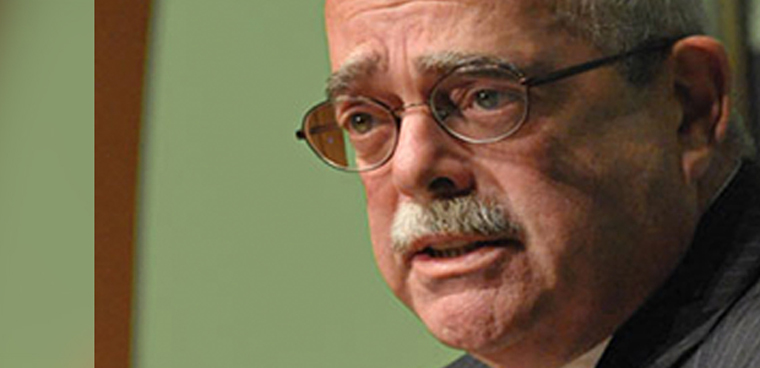Could Schedule F ever come back?
As it stands, future presidents could re-create Schedule F with more exemptions from the civil service, a power that the courts and the Congress have the power to change.

Rep. Gerry Connolly still wants Congress to pass his bill explicitly prohibiting the Schedule F executive order
About three weeks before Election Day last year, former President Donald Trump signed an executive order that created a new category of federal employee, Schedule F, that would be exempt from traditional civil service protections in hiring and firing, as well as eligibility for union representation.
Agencies were asked to submit lists of policymaking, policy determining and certain supervisory posts to convert to the new category. The Office of Management and Budget's submission included almost 90% of its workforce.
Governance groups and federal employee unions panned the substance of the order, saying that it ultimately undermined a career civil service meant to be insulated from political pressures by creating a new category of quasi-political appointees.
Their concerns were shared by President Joe Biden, who reversed the executive order within days after moving into the White House. Reporting from the Washington Posthas found that the implementation of the order was largely scuttled as the lifespan of the Trump administration came to a close.
One question remains, though.
"What's to stop another president four years from now trying the same thing?" asked Steve Lenkart, the executive director of the National Federation of Federal Employees.
"At minimum, there's an open question," said Max Stier, the president and CEO of the Partnership for Public Service.
Trump made the executive order in the name of efficient government and accountability, saying that the order would better enable managers to rid themselves of poor performers. Some of his allies agree.
"It's disappointing President Biden and congressional Democrats seek to allow massive bureaucratic power to continue to go unchecked," said Rep. James Comer (R-Ky.), ranking member of the House Committee on Oversight and Reform, in a statement to FCW. "President Trump sought to rein in the unelected, unaccountable federal bureaucracy in order to make the executive branch more accountable to the American people."
"It nothing changes, it could very much return in the future," Donald Moynihan, a public policy expert at Georgetown University, told FCW. "There's nothing to say that another president four years from now or eight years from now couldn't take the exact same language and write another executive order."
The courts are one way that the landscape could change. The National Treasury Employees Union sued to block the executive order, but legal action was dropped after Biden rescinded the policy.
Legislation is also an option. Some congressional Democrats have acted to try to block the order since it was created.
Rep. Gerry Connolly (D-Va.), chairman of the Subcommittee on Government Operations, wants to take action. He introduced a bipartisan bill with Rep. Brian Fitzpatrick (R-Pa.) before Biden's inauguration, and he still would like it to be passed.
He does not think that the president shouldn't have this authority to create new schedules without the consult of Congress, he said.
"This is about the responsible role of Congress in shaping the federal architecture," Connolly said.
The bill would block the reclassification of any competitive service positions to an excepted service schedule made after September 30, 2020. That would include Schedule F, along with any other new schedules that could be made.
"Congress going back to the 1880s passes the Pendleton Act, which creates the civil service and asserts the principle that we want a nonpolitical, nonpartisan profession cadre," said Connolly. "Until we saw Trump do it, no one had focused on the fact that there's a big loophole here, though, and the irony of that loophole is that it actually undermines the whole purpose of having a civil service."
Beyond Schedule F, fundamental questions about government operations remain, said Stier. The National Federation of Federal Employees would appreciate legislation to block any future Schedule F-type executive orders, as well as increased whistleblower protections, Lenkart said.
The last time Congress passed on overhaul on the civil service was in the late 1970s.
"There's a strong case for some sort of bipartisan consensus to come together and think about 'What would a new civil service look like?'" Moynihan said.



